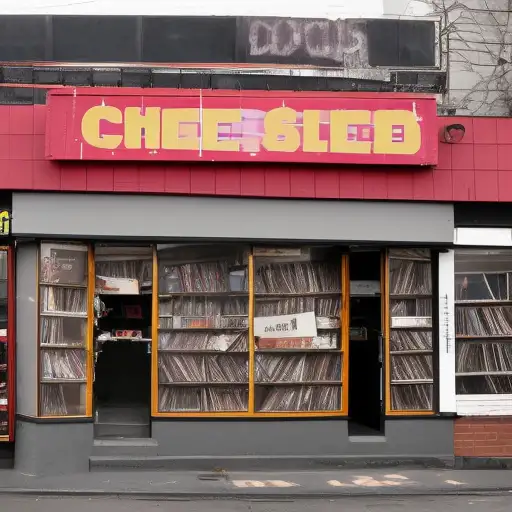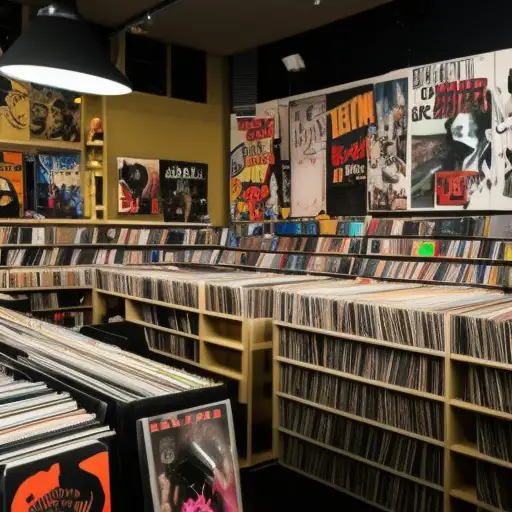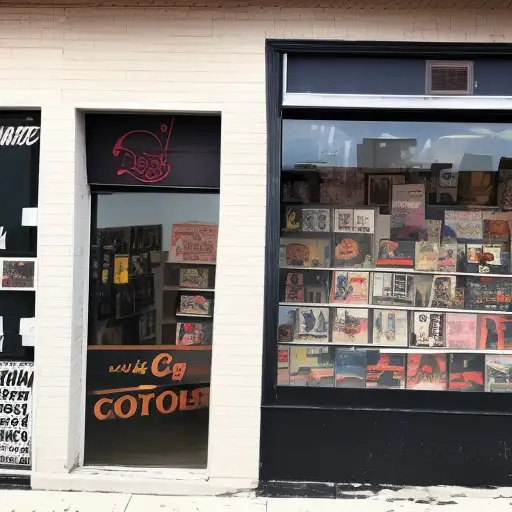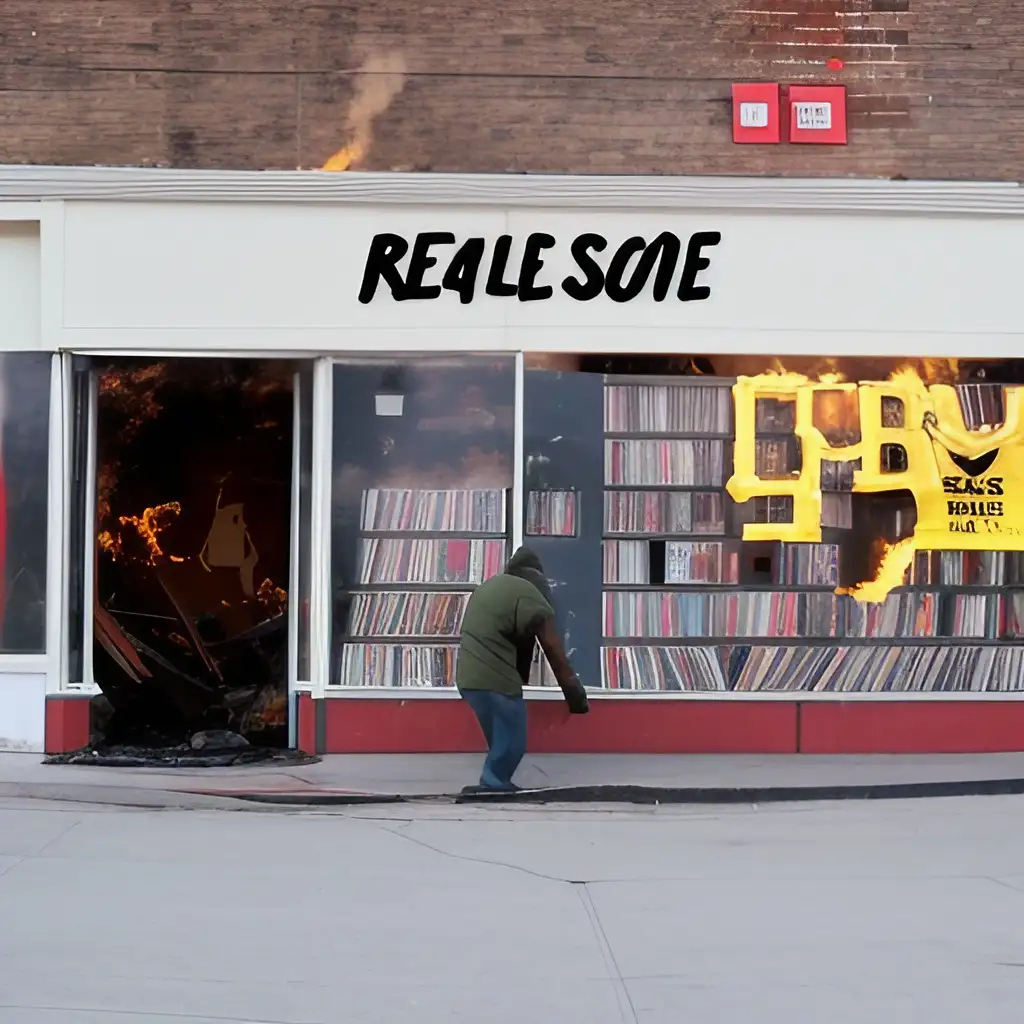The Decline of America’s Record Stores
Take a trip down the American record stores memory lane and find out where they went out of business.
For many, it is very hard to believe that people used to take their money and go to the store to buy records and CDs like some groceries. A spot where you can get lost amongst genres and a safe place for many.
Now that we live in a more digital age of consuming pretty much everything online, it has phased out a lot of places where so many can attribute falling in love with taking the time to search and buy singles or albums from their favorite artists or discover new ones while browsing.
The oldest record store can be found in Johnstown, Pennsylvania, opened during the Great Depression in 1932 called George’s Song Shop. An independent record store also known and celebrated as a legacy. Over the years in the store, the form of music has changed from 7” to 12” vinyl(s), 8-tracks, cassette tapes to compact discs but not the chance to find music to purchase and vibe no matter your age. Since then, over the years we’ve come to know and loved one of the major staples of music history: record stores.
Of course, this would not be the last of its impact to be introduced. In post-war America, one of the only ways to break into the industry would be the relationship between the artists, fans, and record stores. In 1947 Ernest Tubb from Nashville, Tennessee opened the Ernest Tubb Record Shop to help fans who did not have access to the hillbilly performers’ music.
Eventually, he and the singers would provide after-shows called Midnite Jamboree. Giving fans one-of-a-kind shows from country singers who just graced the stage of the Grand Ol Opry and broadcasted all over the United States for listeners to tune in to.

Illegal downloads part of the beginning of the end for music store fronts.
By the 1960s record stores were known as an outlet for the Black communities to promote and sell Black musical talent, especially in the South. Making alternate routes for many to break into the music industry that wasn’t given to them like their white peers in the industries. Black consumers all over felt comfortable being able to shop and discuss music without fear of retaliation.
In Northern cities, some record stores in white neighborhoods were seen as a gateway to musical cultures from others but weren’t as successful all the same. As the late 70s and early 80s arrived if you wanted to find a new release you would either locate it through rack locations or any other mom-or-pop stores until the record store chains became available.
Stores chained throughout the United States in malls and shopping centers like Camelot Music, Sam Goody, Tower Records, Virgin Records, and Circuit City, purchased independent shops as well to grow their presence within the market. Regional chains like The Wiz in the northeastern area and Licorice Pizza a west coast chain that was eventually purchased by Sam Goody and Music Land.
In these music wonderlands, it ignited for many, the love of searching for the next album on Tuesdays. instead of the usual Fridays that we now wait for. 1989 brought that decision in after record labels would release their artists’ work and stores would release them as soon as they get them.

Move to digital downloads brought in a new and quicker way for music fans to find the music they like.
Creating a difference when stores in other chains in different areas and upset fans who felt it was unfair. It wouldn’t be until 2015 that global record labels agreed to have Friday as the drop release day.
With record chains popping up all over the U.S. they were a great medium for artists to do meet and greets for releases. Many artists and groups used the record store as a music platform to share their work. Having a place to purchase music, and meet artists and people with like-minded music tastes was a great formula for the success of record stores.
Add in the type of music that was being released and you can’t deny how much record stores played an important role in their success and the expansion of their fanbase and relevancy without the use of tech devices.
When the 90s rolled around you still couldn’t turn on a radio or go without hearing about a popular artist having a meet-a-greet, signing, or album release event. But every good thing that begins must start to have an end and the red flags of the decline of the record store chain started to show their colors.
The evolution of music doesn’t leave out how or what music is heard and with technology evolving at an even faster pace, we start to see the need for record stores to phase out. While CDs became the go-to replacing 8-tracks and cassettes MP3s made their way onto the computers and changed the music industry forever.
As the 2000s approached more people were able to show they owned a tech device that could download and hold music files. Websites like Limewire, Napster, and Kazaa became outlets for consumers to find and download music they would normally have to go to the store and pay for.

If you lived through the record store heyday then you enjoyed the process of browsing the the stores for hidden gems and physical albums.
It became such a popular tactic that the Recording Industry Association of America (RIAA) in 2007 had to sue them to shut them down individually due to the illegal practices of copyright infringement. That same year Record Store Day was recognized. A Saturday in April dedicated to fans, artists, and their love of independent record stores.
Boosting the support and use of other legal platforms that provided access to subscribe, listen, and download music at a monthly subscription price. As great as the idea is it is very illegal to give away copyrighted material at a large mass which results in sales loss.
Online access to albums, mixtapes, and unreleased music has played a role in phasing out record stores. Less CDs are available especially when more artists have their vinyl, CDs, and merchandise available online for them to access at any time they would like to. People started to realize that they don’t have to travel to a store to gain the experience of browsing and finding what they are looking for in musical entertainment.
Shifting the dynamics of music consumption, record keeping, and purchasing. Keep in mind these stores are not completely gone from existence and you may be able to find a local mom-and-pop in your area for you to support.
Blog Article Tags
record stores downloads digital kazaa napster limewire copyright illegal cds store buyMore Articles
Where To Find Good Indie Music - If you're a long time fan or first time listener of Indie music, we'll show you the best methods for discovering the music you love.
Discover Indie Music: The Best Way to Find New Music - Top 10 ways to discover indie music. Keep reading if you're looking to find new music.
Make Money With Your Music: 10 Creative Ways to Monetize Your Talent - If you're looking to make money from your music then our tips will be sure to help.
The Ultimate Guide to Uploading Your Music to Spotify - We show you step by step how to get your music added to Spotify as an artist.
How To Buy Music On a Budget - Check out these easy tips to learn how to buy music on a tight budget.


